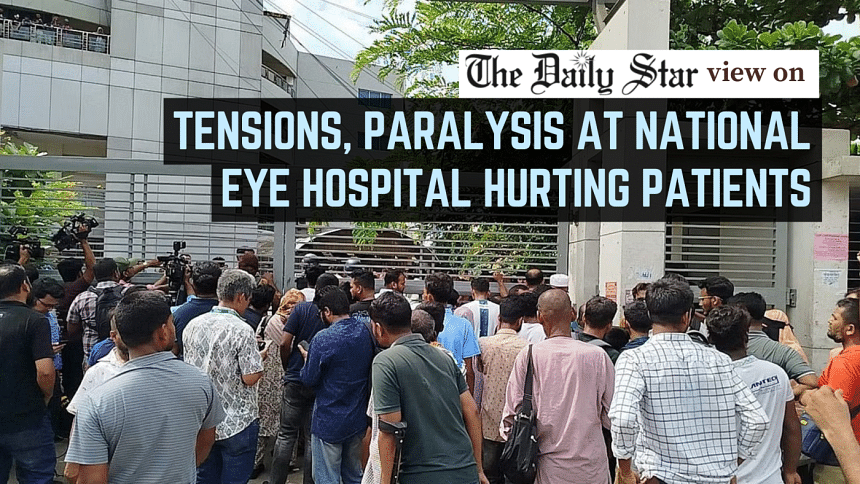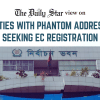Fix the mess at NIOH immediately

The prolonged closure of the National Institute of Ophthalmology and Hospital (NIOH)—the country's largest public facility for eye care—is something that should never have happened, given how it not only affects ordinary patients seeking eye treatment but also worsens an already battered image of the state's handling of those injured during the July uprising. At this point, it is immaterial to debate who was or is more at fault for the paralysis—hospital staff or the protesting July Joddhas. What's important is that ordinary patients are suffering because of it.
On Thursday, outpatient (outdoor) services resumed after a suspension that began on May 28, about two weeks ago, while emergency services resumed on a limited scale on June 4. But other essential services remain halted. Worryingly, the prospect of full operations being restored on Saturday is clouded by fears that tensions may again flare up with the likely return and re-mobilisation of injured protesters following the end of the Eid holiday. The protracted stalemate has already caused immense hardship for low-income patients who rely on this facility for affordable care, with thousands turned away. Any further disruption will only deepen their suffering and further erode trust in the authorities' ability to mediate convincingly in this meaningless standoff.
This latest episode in the short history of public outbursts by injured July Joddhas started on May 28. That day, a group of protesters long admitted to NIOH allegedly attacked the staff as well as residential quarters, sparking a three-way clash that also involved other patients and their attendants. A number of individuals were injured, including doctors and nurses. All this led hospital staff to suspend services over safety concerns. Despite sporadic negotiations and partial service resumption afterwards, things remain tense. Fuelling concerns is the refusal of July protesters to accept discharge letters despite many among them being cleared by a medical board on June 4.
Against this backdrop, the hospital authorities, as one of the involved parties, may find it difficult to broker a solution alone. The onus, therefore, lies with the higher authorities to mediate a solution that ensures uninterrupted treatment for both the July injured and the general public. This will require clear communication of discharge procedures and addressing the protesters' grievances about neglect or malpractice. The July Joddhas deserve proper care. But so do the ordinary patients who come to this hospital for treatment.

 For all latest news, follow The Daily Star's Google News channel.
For all latest news, follow The Daily Star's Google News channel. 








Comments